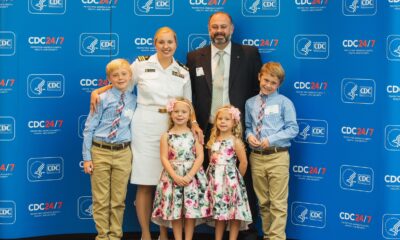Community
Looking Up: Two Peachtree Corners residents show enthusiasm for things that fly
Published
5 years agoon
By
Joe Earle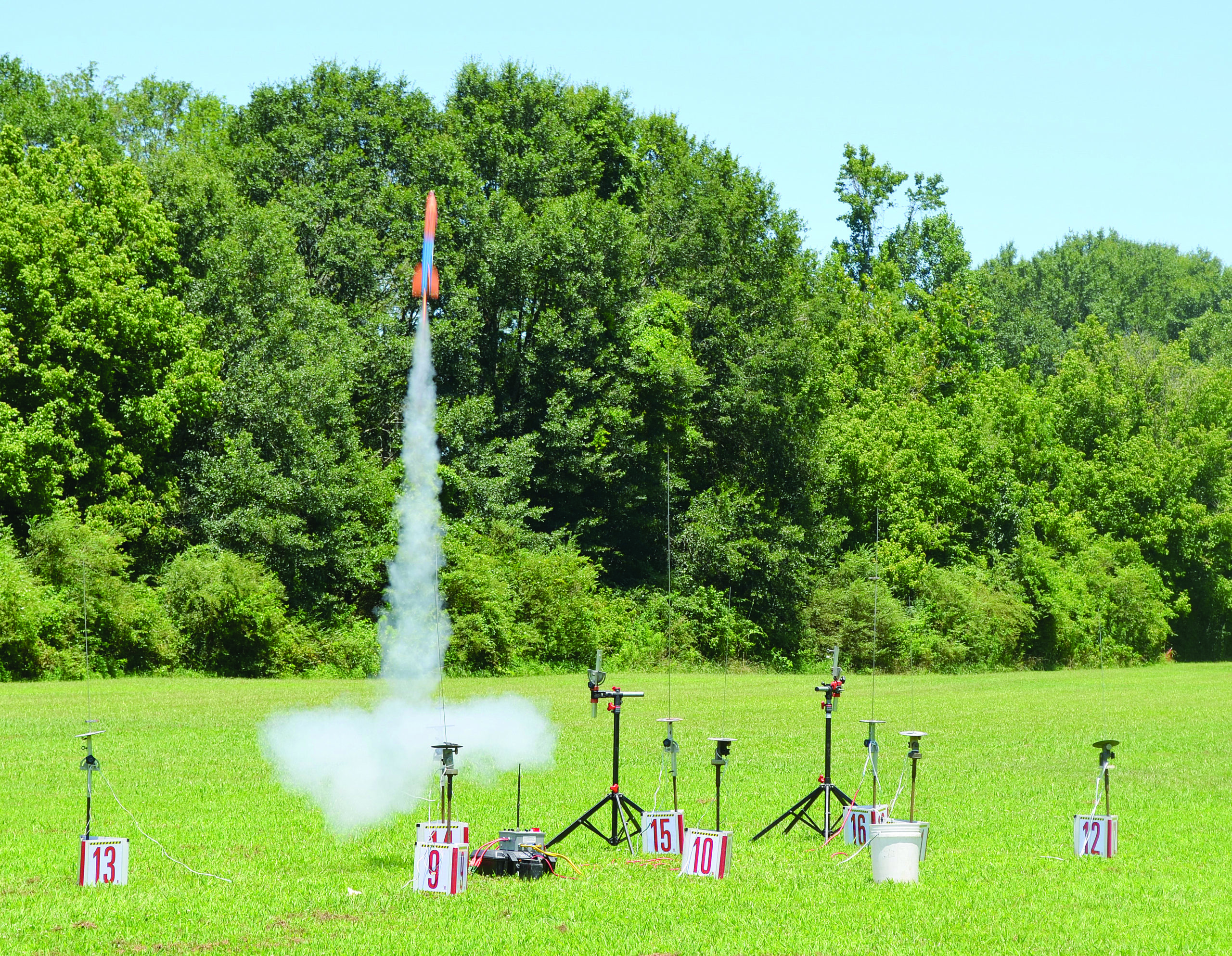
One hot Saturday in July, a cloudless sky burned deep blue above an isolated field hidden among the woods behind a private high school in Atlanta’s northern suburbs. About 20 cars, pickups or SUVs lined the edge of the grassy field and families gathered beneath tents or tarps they’d pitched beside their vehicles, like tailgaters at a football game. In the middle of the field, a pair of model rockets sat side by side on launch pads, waiting the electronic command to blast skyward.
One belonged to Maddie Cain, a 9-year-old from Peachtree Corners who enjoys flying rockets with her dad. She and Nicolas Ruthruff, a 7-year-old friend from Acworth, planned to launch their rockets side-by-side in a “drag race,” a competition to see how well each rocket performed. The winner would be the last rocket to hit ground. Jorge Blanco, president of the Southern Area Rocketry club (SoAR), stood in the shadow beneath a tarp next to the launch area. Blanco counted down from five to zero and the rockets zipped into the sky. After just a few seconds, they headed back to earth. Nicholas’ rocket won. The two rocket racers ran across the mowed grass to collect their models so they could fly another day. “Good race,” Maddie said.
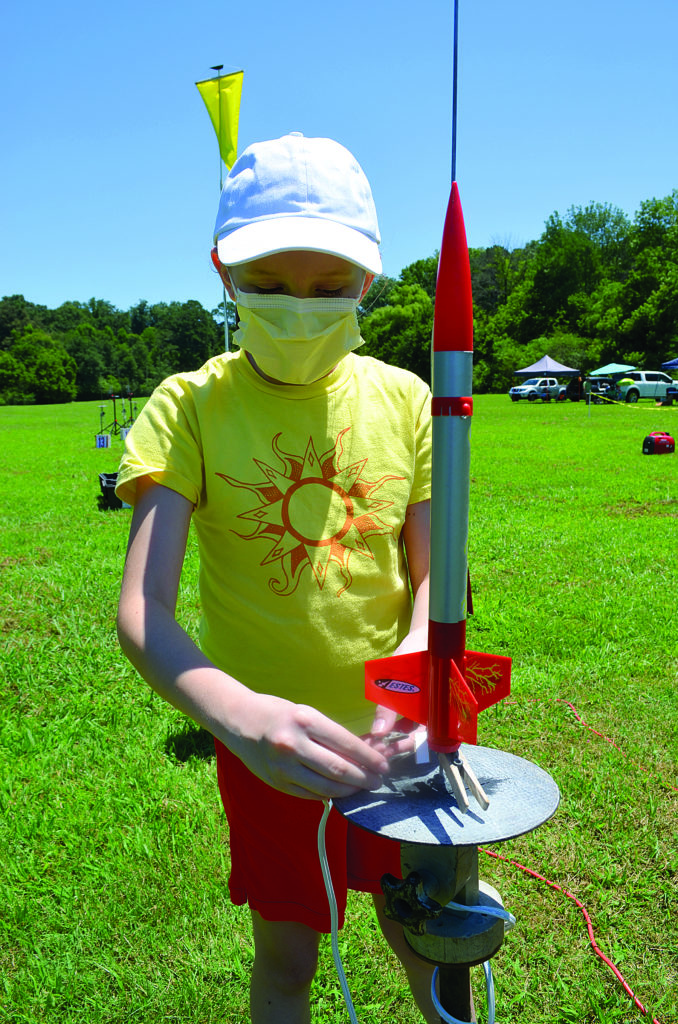
Maddie learned about model rocketry from her dad, David Cain. Cain, a 61-year-old software interface architect, first flew model rockets as a boy who was, as he put it, “growing up in the Space Age.” He moved on to other interests as a teenager, he said, but picked up the hobby again a few years ago as a common interest with his children, Maddie and her 12-year-old brother Jim. This year, Cain took over as vice president of the 400-member SoAR.
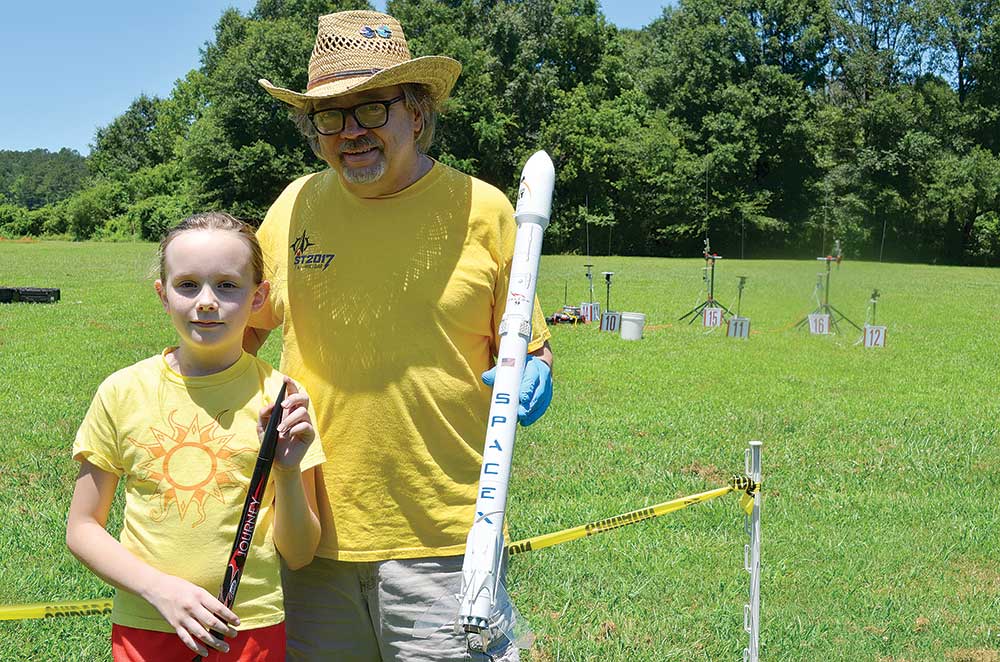
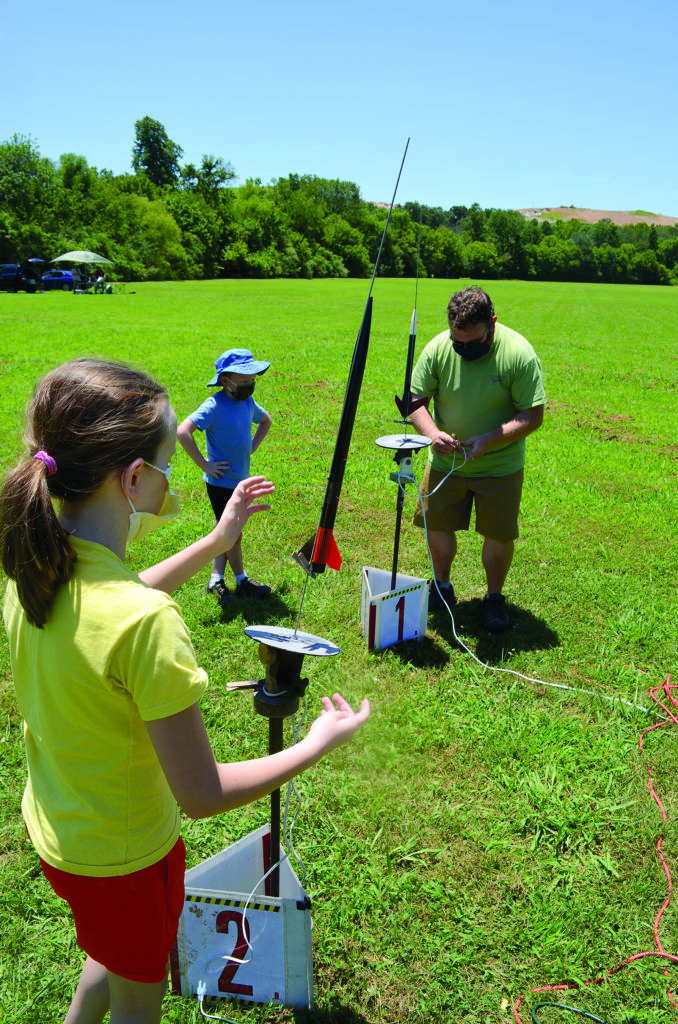
These days, he and another Peachtree Corners resident, Moreno Aguiari, are working to help introduce metro Atlantans to machines that fly.
New kind of aviation museum
While Cain engages in model rocketry, Aguiari, a 44-year-old commercial pilot and publisher of a magazine about vintage warplanes, wants to help create a new museum and education center built around Georgia’s aviation history and industry. The new Atlanta Air and Space Museum is proposed for 18 acres on the eastern side of the DeKalb-Peachtree Airport, the county-owned airport in Chamblee usually referred to by its call letters, PDK. The property, once used for a runway but now abandoned, offers a close view of PDK’s working runways and airport facilities.
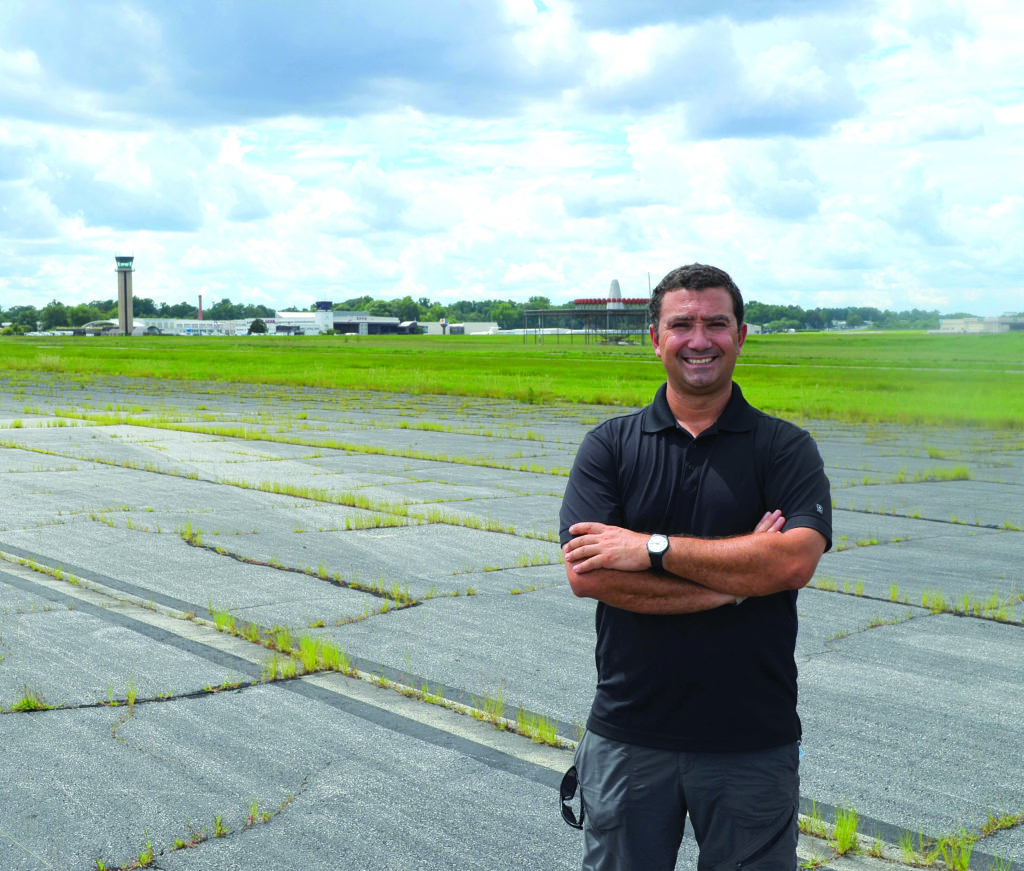
Aguiari is a founder and board member of the Inspire Aviation Foundation, a nonprofit created about three years ago to create the museum. “The purpose of this museum would be to acquire, restore and conserve historic aircraft, spacecraft, technology and related artifacts, while creating innovative visitor experiences that are educational and entertaining,” the foundation said in a press release.
Aguiari puts it a bit more simply. The museum’s proponents, he said, don’t want simply to create another building full of old airplanes, like plenty of other aviation museums scattered around the country. “We are not going to build your typical box full of planes,” Aguiari said as he sat in a conference room at PDK once recent afternoon. “That’s an old concept of a museum.”
Instead, they see exhibits that are interactive and engaging to young people. They want the DeKalb School System and perhaps even Georgia Tech to be involved with the aviation campus to create a place where students can learn about aerospace careers and flying.
The foundation wants to create a place “designed to build aspiration for a life in Science, Technology, Engineering, Arts and Mathematics (STEAM),” it said in its press release. “But the platform will go further than aspirations to nurture an interest in aviation throughout someone’s entire life. The [foundation] wants to offer a tangible path from childhood all the way through an aerospace career and beyond.”
Aguiari realized the PDK museum should be different when he was taking his own children to see other aviation museums. He liked looking at the old planes, he said, but his kids soon were bored. “My 5- and 6-year-old kids were telling me, ‘Dad, can we go someplace else? Nothing moves here.’”
Fellow foundation board member Latessa Meader, a C-130 pilot in the U.S. Air Force Reserve, got excited about and signed on with the project last year because of its educational components. She’s a former high school math teacher who says she became an aviation mechanic and then a pilot because she thought the most interesting teachers were those who had done other things during their lives.
“We don’t want static airplanes with placards in front of them,” she said. “All of us have a passion for aviation and we want to inspire that in students from age 1 to 100.”
She said she wants the project to showcase careers in aviation and aerospace and show students how to pursue jobs as engineers, air traffic controllers, mechanics or baggage handlers. “Anything you enjoy doing can be [related to aviation],” she said. “One of my long-term goals in this is to capture their passions.”
The museum would tell the story of aviation in Georgia. Georgians have built airplanes at Lockheed Martin and Gulfstream, flown them for Delta Air Lines and operated the busiest airport in the world. “Georgia has an incredible aviation history [stretching back] almost 120 years,” Aguiari said.
Georgia’s aviation heritage
Georgians were building and flying airplanes soon after the Wright brothers showed it was possible. One of the nation’s aviation pioneers was Ben Epps of Athens, whose descendants made flying a family tradition that continues. His youngest son, Pat Epps, started Epps Aviation, the fixed based operator still in business at PDK.
The land that would become PDK was part of the site of Camp Gordon, a World War I army training base. The property was sold at auction after the war to a private owner, and then in the 1920s and early 1930s, aviation enthusiasts thought the land would make a good airport, according to the PDK webpage. In 1940, DeKalb County bought the land and dirt runways and opened it in 1941, the webpage says.
During World War II, the property was home to a U.S. Naval Air Station. “Many young men, not only from Georgia but from all over the United States, began their flying careers during the next few years, while the Navy was using the airport for pilot training,” the PDK webpage says.
After the war, the Navy continued to operate the airport as a Naval Air Station until a new facility that could handle jets opened at Dobbins Air Force Base in Cobb County. PDK returned to full civilian use in 1959.
One of the first collections the aviation museum has received is composed of memorabilia from retirees of the Naval Air Station. The collection includes photographs, logbooks, newspaper clippings and other artifacts that had been displayed during annual meetings of the retirees. The foundation is having the items photographed so they can be preserved digitally, Aguiari said. With the items, the museum can showcase the air station’s history so “the guys who served here will not be forgotten.”
Efforts to pull together the aviation museum and to develop the campus are expected to take at least three to five years, Meader said. The foundation is conducting a feasibility study for the project and for fundraising for the millions of dollars needed for the project, Aguiari said. He remains hopeful.
“I’m just a regular Joe with a big vision,” Aguiari said. “It’s not like we have millionaires or big companies behind it. It’s just a bunch of regular guys trying to build something incredible.”
Soaring high
David Cain pursues a different vision. He still regularly fires small kit rockets similar to ones his daughter Maddie and Jim build and fly, but he’s also looking up to see just how high some of his models can soar and survive.
SoAR organizes launch days for small rockets every month. (The launches are open to anyone who wants to fly rockets, not just members). But its members also take part, a few times a year, in high altitude flights from fields in south Georgia, Alabama or other places far from the flight paths of airplanes. Cain has taken part in a few of those outings. He said his collection now includes three high-powered rockets, three middle-level ones and seven smaller ones. His personal best flight went up about a mile, he said.
Still Cain likes flying rockets, no matter what size they are. After all, not all launches work. Some rockets sit dead on the launchpad. Others blow up or reach only a few feet before heading back to ground. Others end up in the trees surrounding the range and can’t be recovered.
“I have never lost the thrill of seeing my rocket go up there,” he said. …“It is a challenge. It’s the joy of watching it fly.”
The hobby also allows him to indulge other passions. He likes to operate a 3-D printer to make things, he said, so now he creates his own rocket parts. At the range in July, he flew a model of the Space-X rocket that he had built from a kit he bought from Space-X, he said. The largest rocket he’s built, he said, stood about six feet tall “…and looked like a length of black hose. I have gotten to a point that my teenage self would not recognize the rockets I do now.”
These days, flying rockets also connects him with his kids. “There’s not just one reason I enjoy it,” Cain said. “I discovered when I did it with my boy that I still enjoyed it. I just hadn’t done it in a while. As a hobby, it allows me to integrate my different interests…. It’s a great way to spend time with the kids and to give them experience building things with their hands.”
Cain said building and flying their rockets gives rocketeers the feeling of personal satisfaction and achievement that video gamers feel when they finally conquer a difficult level in a game and “level up.” “Rocketry delivers a similar kind of thing,” he said. “It’s a ‘level-up’ experience when you do something like fly your rocket to 5,700 feet and then then get your rocket back.”
Maddie sees that, too. “I’m enjoying myself pretty much,” she said after a few launches on that hot Saturday in July. “Today, there is a breeze going and there are kids here. … The main reason I’m here is to hang out with my dad and have fun flying rockets.
“It’s kind of cool to watch your rocket go up and realize, ‘Hey! I built this thing and it’s working!’”
Find Out More
Learn more about rocketry and the museum project at:
Atlanta Air & Space Museum — atlantaairandspacemuseum.org
SoAR Rocketry —soarrocketry.org
Related
Veteran newspaperman Joe Earle has covered Georgia and Atlanta and its suburbs since the 1980s. Before that, he worked for newspapers in Kansas and South Carolina.

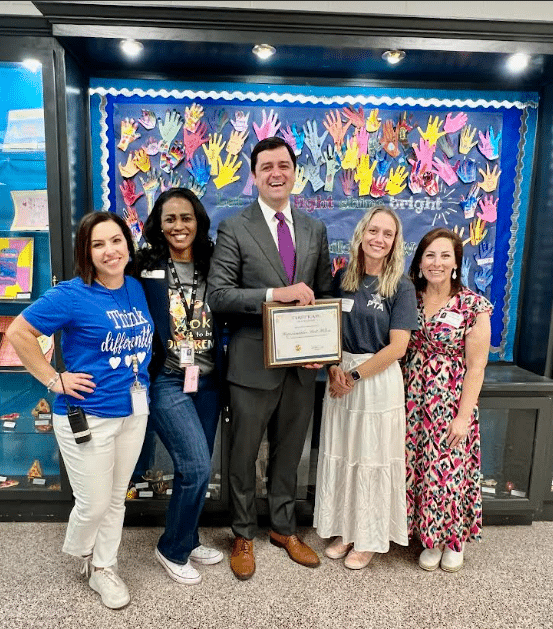
Simpson Elementary School celebrated Exceptional Children’s Week (ECW) last month with five days of special activities to recognize their special needs population and all of their exceptional students.
April 14–18 is set aside each year to celebrate children with disabilities, gifts and talents. This year’s ECW theme was Bridging Gaps and Building Futures, and the school was happy to take part.

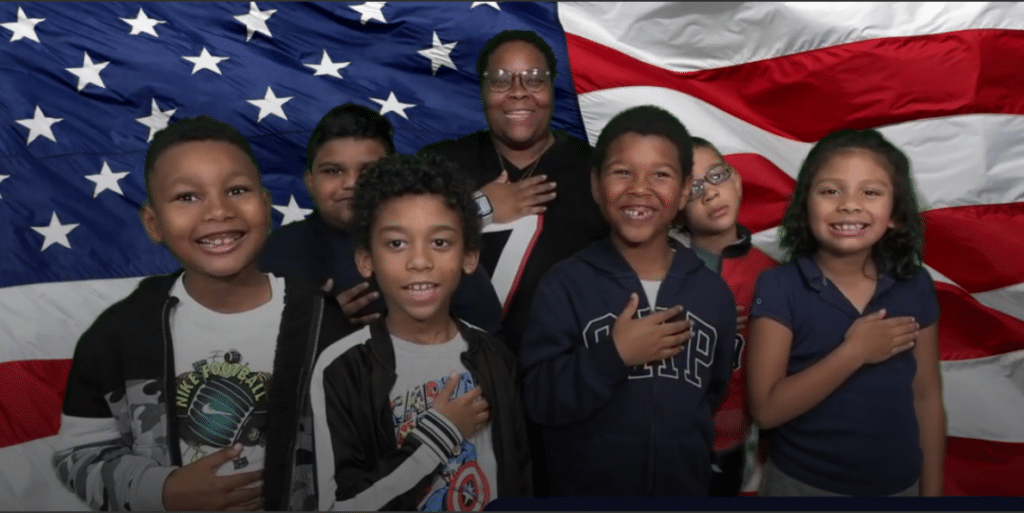
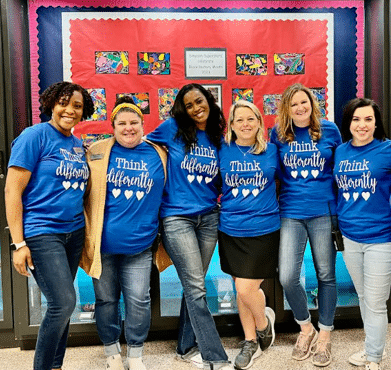
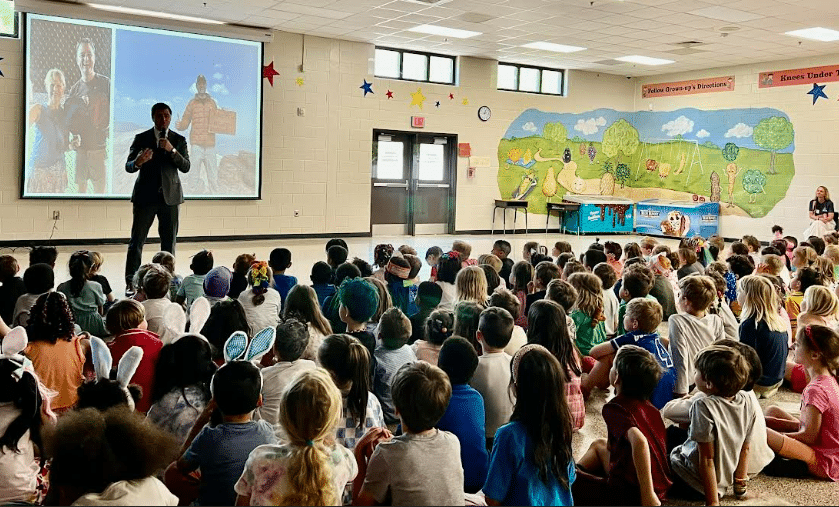
They highlighted each day of the week on the morning news with fun facts about notable people in society — and throughout history — who have overcome challenges with their disabilities, including actor Daniel Radcliffe (who has lived with dyspraxia for his entire life), Tom Cruise, Whoopi Goldberg, Frida Kahlo and Helen Keller.
Simpson Elementary’s technology team also pre-recorded various special needs classes reciting the Pledge of Allegiance every day of the week.
Guest speaker
To end their ECW with a bang, they invited former Simpson Elementary parent, State Representative Scott Hilton, to come in and speak to their K-2 classes about raising his son, Chase (who is autistic and now a student at Norcross High School), and how being different is okay.
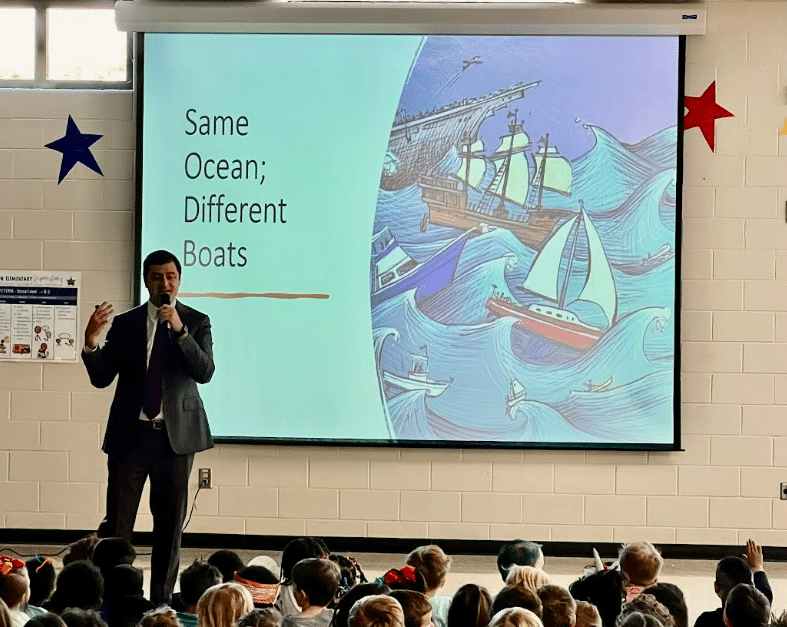
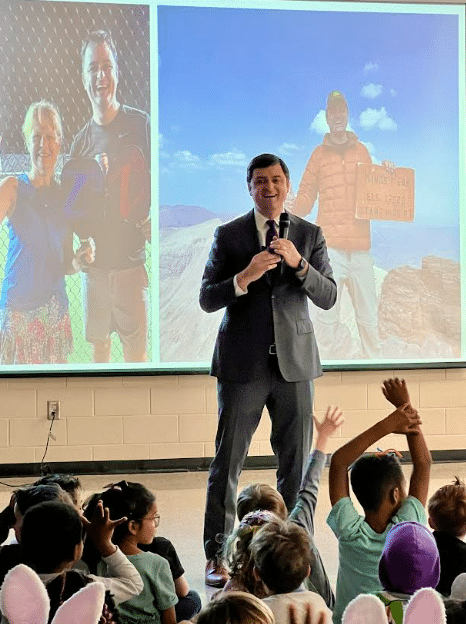
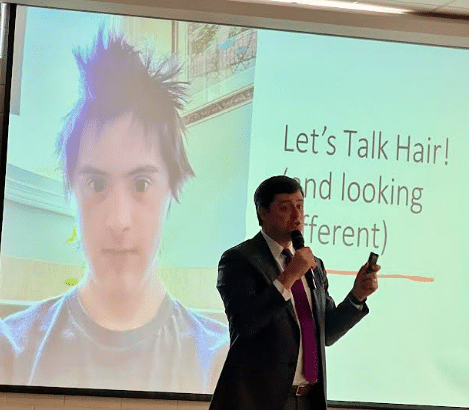
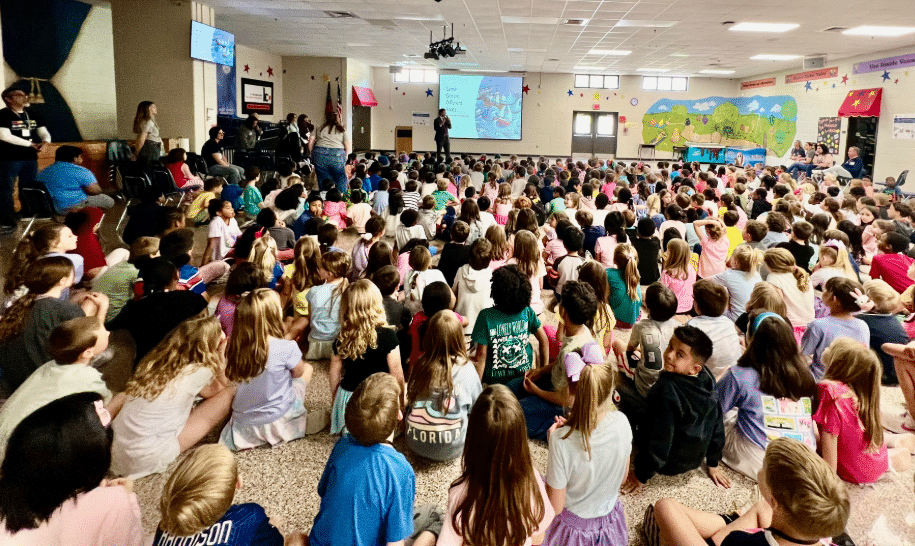
“Showing kindness and being inclusive is the best version of humanity,” said Dr. Taffeta Connery, Simpson Elementary School principal, in a statement about the event.
“Simpson Elementary has a special needs population of 214 (23%) of 946 students. [And] … we strive to ensure that our students are valued, recognized and instilled with high expectations for all.”
For more about Simpson Elementary, visit simpsones.gcpsk12.org.
Related
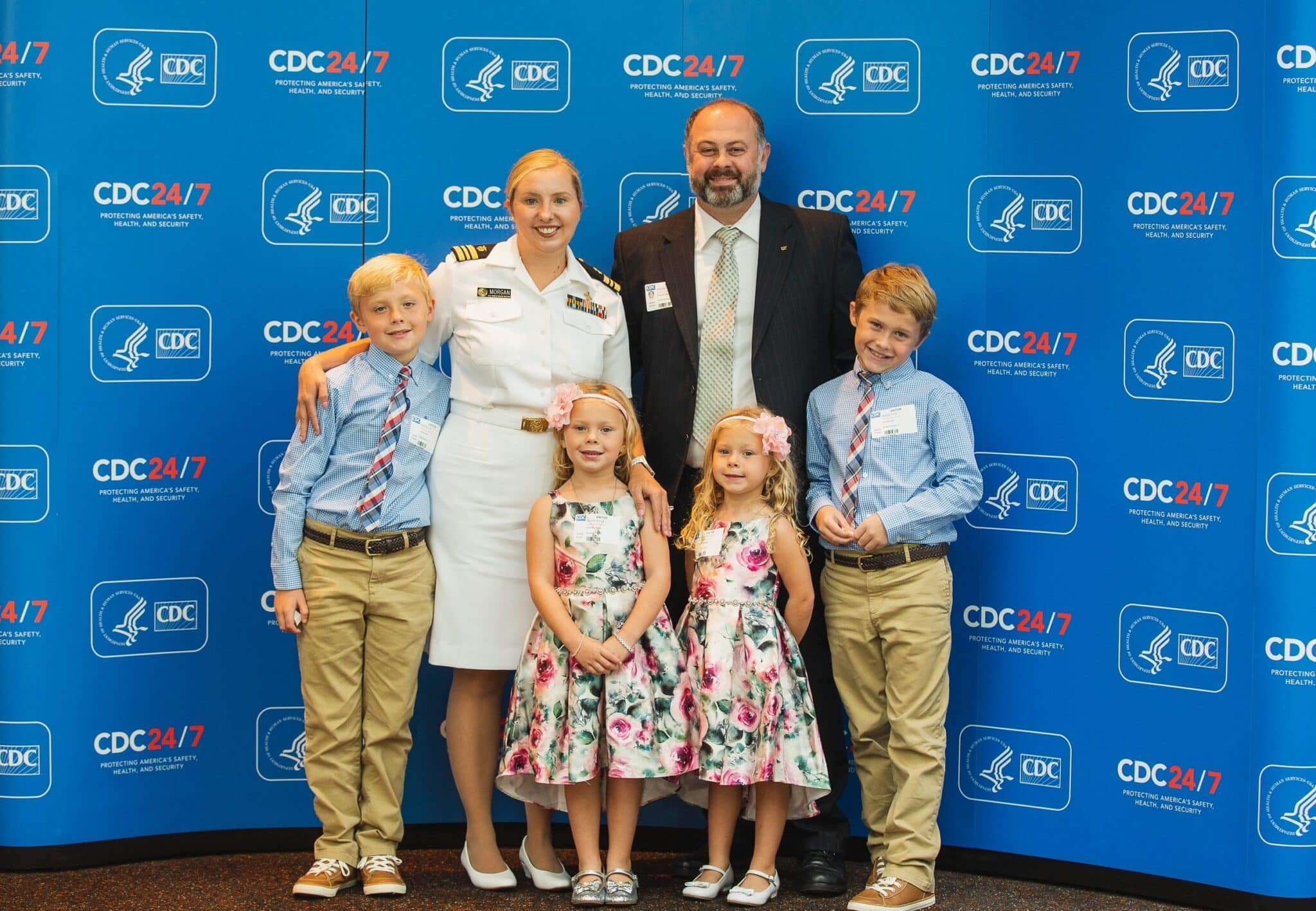
Motherhood comes with a lot of moving parts. For these Peachtree Corners moms, it also means leading teams, building careers and keeping the family schedule running. Most days, all at once.
This Mother’s Day, we’re spotlighting seven women in our community who are doing just that. They’re professionals in full-time leadership roles, showing up to strategy meetings by day and soccer games by night. They’re problem-solvers, planners, caregivers and coaches.
What connects them most isn’t just what they do, it’s how they do it. With intention. With humor. With support from partners, parents, friends and neighbors. And with a deep appreciation for the community they’ve built in Peachtree Corners.
Through their stories, we celebrate more than titles and to-do lists. We honor the quiet, constant work of showing up.
Tracy Lee
Tracy Lee leads with heart and vision as CEO of This Dot Labs, a software consultancy focused on helping businesses solve complex challenges through technology. Her engineering leaders collaborate with major clients like Stripe, DocuSign, Google, Wikipedia and Roblox. She’s passionate about her work.
“I love the mix of problem-solving and people leadership and knowing the work we do can make a real-world impact,” she said.
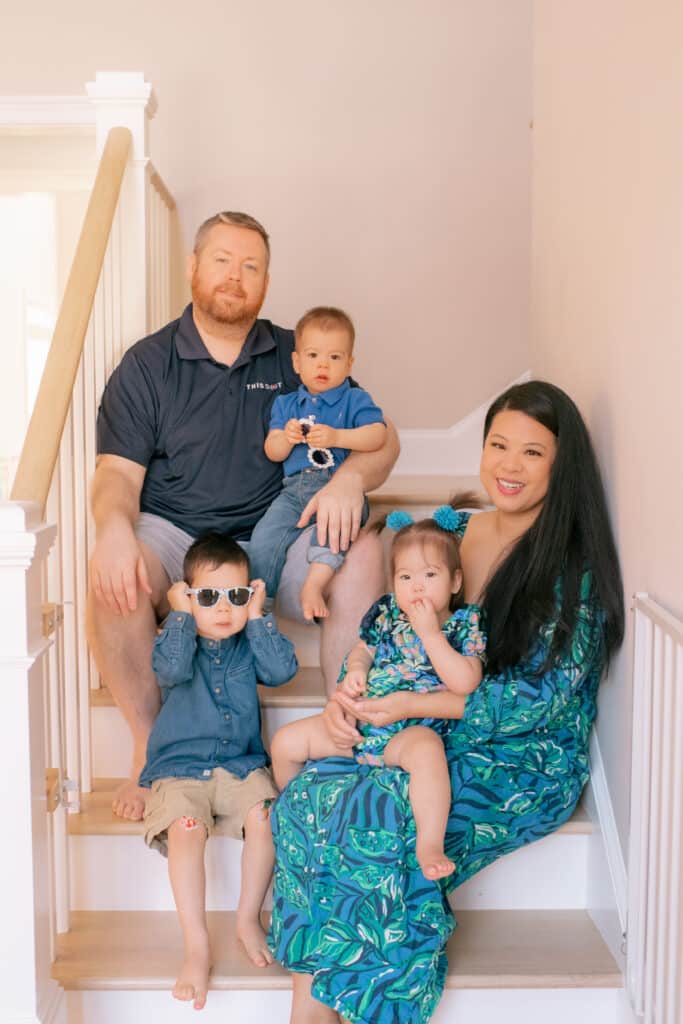
Tracy brings that same intentionality to her life at home, where she and her husband, Elliott Fouts, are raising three young children: William, 3, and twins Angelina and Marcus, who are 1.5. Despite the busy pace, Tracy is committed to being present in every role she plays.
“I have three full-time nannies and two part-time nannies, as well as girls around the neighborhood who are mama’s helpers to manage the chaos! With the help, we are able to do more and enjoy more time with our kids,” she said. “I try to be fully present, whether I’m in a meeting or building block towers in the living room. It’s never perfect, but we focus on what matters most in the moment.”
Tracy credits her support system for making it all possible. “I have an incredible partner and a strong support system between our nannies, friends and local community,” she said. “We have a local moms group for Asian moms called Georgia Asian Moms, and there are so many moms just in our neighborhood. It’s really great.”
Peachtree Corners has become a meaningful home base for the family. “We absolutely love it here,” she said. “There’s amazing programming for kids at The Forum every Tuesday in the spring and summer. It’s such a gem for young families.”
Weekends often include time outside and community adventures. “Sometimes the best hack is just piling everyone in the wagon and heading out for fresh air!” she said.
Tracy leans on a strong partner, a tight-knit group of friends and a local moms network. “It really takes a village,” she shared. “And I feel lucky to have one.”
Melissa Nicholson
Melissa Nicholson knows what it means to lead with heart and precision. As division vice president of program management & international solutions at Aya Healthcare, she helps internationally educated healthcare professionals enter the U.S. workforce.
“What I enjoy most is the opportunity to support these professionals in achieving their American dream,” she said. “While also contributing to improved patient outcomes across the country.”
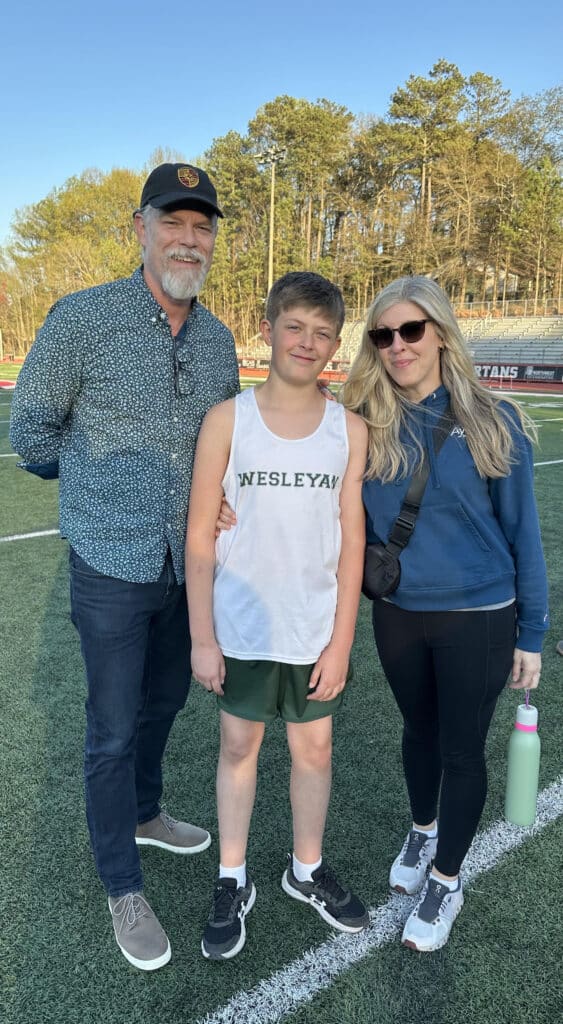
Melissa and her husband Greg recently celebrated 15 years of marriage. Their 12-year-old son, Luke, and a cat named Charlie bring a fun, loving dynamic of their own into the family. After relocating from East Atlanta a decade ago, they quickly embraced the Peachtree Corners community.
“It’s the people who make this community so special,” she said. “We’re truly grateful to count our neighbors as friends.”
Balancing an executive role with family life takes clarity and commitment. “I have to be very intentional with my time,” Melissa shared. She sets boundaries at work and makes sure her team knows when she’s off the clock for important family moments.
Wellness is a key part of her rhythm. “I recently started working out at Orangetheory Fitness,” she said. “I’ve noticed a significant boost in both energy and focus.” Sundays are for church and reflection.
When she travels for work, Greg holds it down at home. “We rely on each other to keep life running smoothly,” she said. “I’m grateful every day for that kind of partnership.”
On weekends, Melissa prioritizes quality time. Whether that’s a hike, pool day or baking something from scratch. “We’ve learned that if we don’t prioritize those moments, the weekends can quickly get taken over.”
Diva Hicks
For Diva Hicks, work isn’t just a job, it’s personal. As creative senior manager at CURE Childhood Cancer, her mission runs deep.
“At 12 years old, my sister was diagnosed with cancer,” she said. “CURE, in its early days, was a resource for my family.”

Her sister survived and now thrives. That experience shaped Diva’s career and continues to inspire her today. “This is my opportunity to give back to CURE for what it did for my family,” she said. “It’s rare to find a place where your purpose and passions collide.”
CURE also welcomes her whole family into the fold. “I get to bring my kids to events all the time,” she said. “They love feeling like they are a part of my work.”
Diva lives in Peachtree Corners with her husband John, their children Adair, 8, and Tripp, 6, and two golden doodles. “There is a sense of community here that I think is special,” she said.
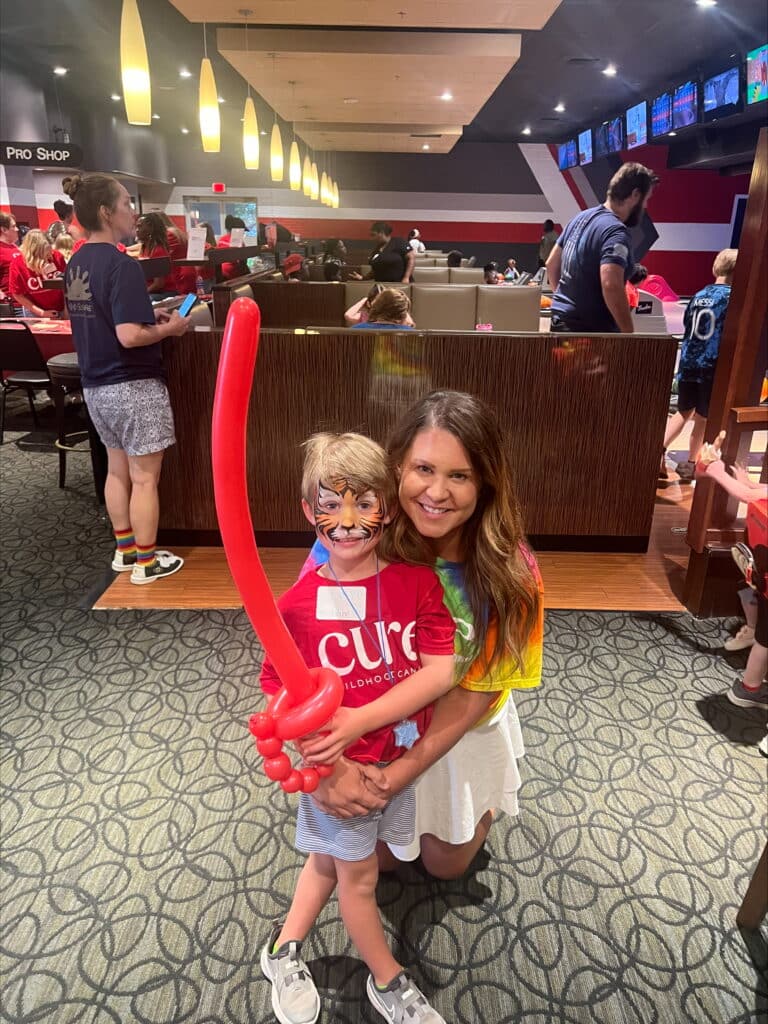
Balance is a daily effort. “John and I have tackled who helps with homework and on what days,” she said. “I would not be able to be the mom that I am without my village.”
She leads school committees and never misses events. “Is it easy? No,” she said. “But I honestly say, it’s not easy for any parent.”
Diva’s motivation is clear. “I want Adair to look at me and see that she can be a mom and have a career too.”
The family stays grounded with tennis weekends and careful planning. “We live by our calendar,” she said. “The more prepared I am, the easier life is.”
Kate Martin
Kate Martin knows how to bring structure to busy systems. As senior director of financial planning and analysis at Alloy Roofing, she finds energy in collaboration and clear strategy.
“In this role, I work closely with various teams across the business,” she said. “It supports the company’s strategy and performance.”
Kate and her husband, Nathan, are raising two children, 14-year-old Elliot and 10-year-old Evan, in Peachtree Corners. After ten years in the area, she credits the people for making it feel like home. “Life wouldn’t be the same without the relationships we’ve built here,” she said.
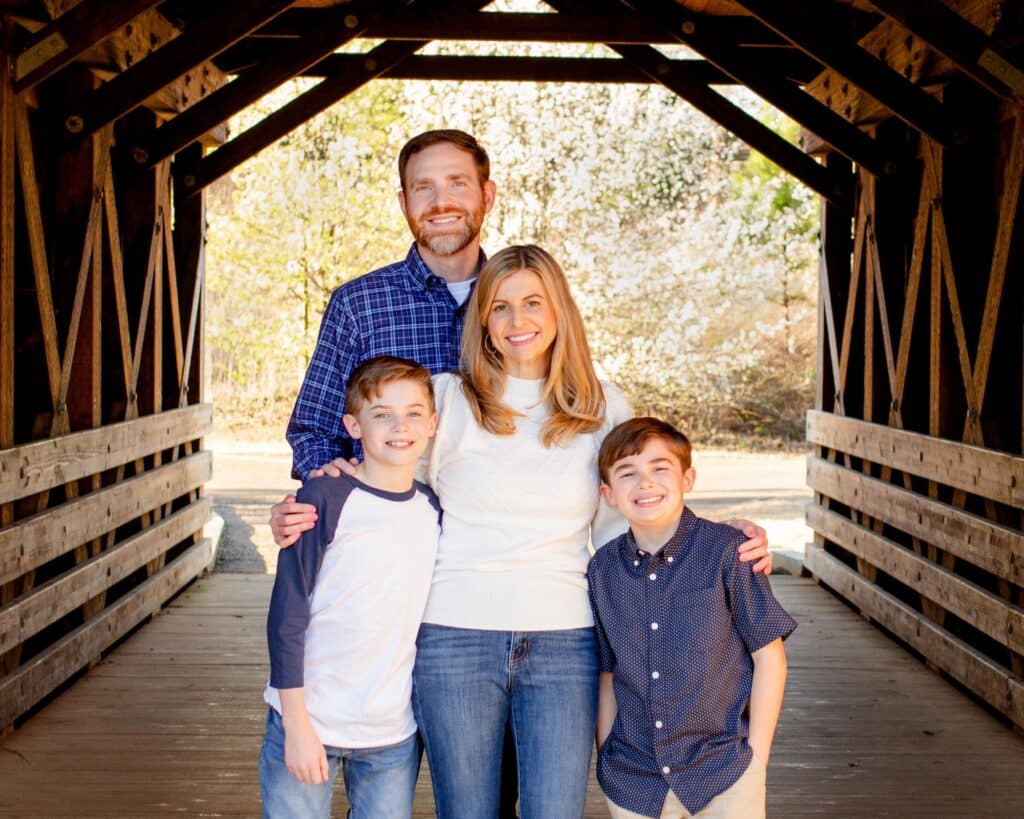
Balance starts with planning. “We keep a central Google calendar synced with all the family commitments that we review daily,” she said. “On Sundays we write on the kitchen boards.” Their chalkboard becomes the weekly roadmap, from meals to responsibilities.
“Seeing things laid out visually keeps me from overcommitting,” she added.
The family stays grounded by recognizing progress. “What keeps me motivated is celebrating both the big and small wins together,” she shared. “Sometimes, making it through the week is a victory in itself.”
Kate relies on a strong network. “We are very fortunate to have my parents nearby,” she said. “I also have an amazing network of women here in Peachtree Corners that I rely on.”
Her favorite hack? “An app Nathan created to help manage our calendars,” she said. “He created a solution to integrate these webcal subscriptions into a central subscription hub.” It’s called Skedj, and they’re piloting it now. “If you know this struggle and want to help us pilot the app, check out skedj.co!”
Linda Luna
As vice president at RSUI, Linda Luna manages risk while empowering people. She leads a team of underwriters who handle professional liability and cyber insurance. “I really enjoy my job because of its dynamic nature and the opportunity to help people in meaningful ways,” she said.
Whether she’s mentoring her team or protecting clients’ businesses, Linda finds value in impact. “It’s rewarding to know that my work has a positive impact on both my colleagues and our clients.”
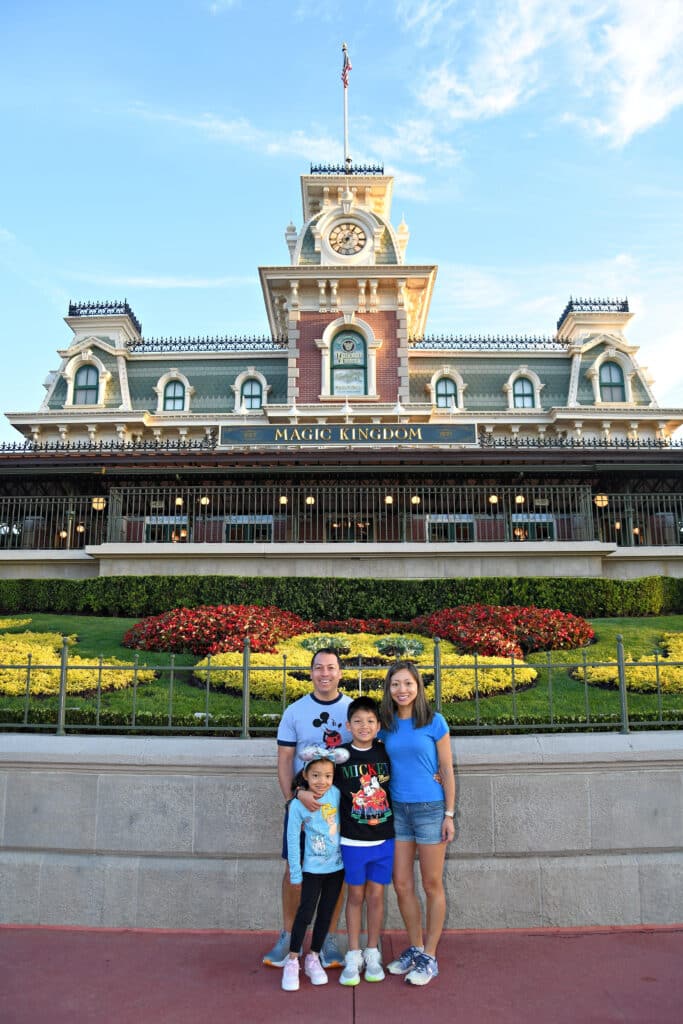
She and her husband, Ruben, are raising their two children, Dawson, 10, and Ava, 6, in Peachtree Corners. Her parents, though not under the same roof, are a constant part of daily life. “They help keep things running smoothly on the home front,” she said.
After nine years in the community, Linda has grown to love its blend of charm and convenience. “There is always something to do,” she said. “Whether it’s grabbing a bite at Ted’s or spending time with friends at Town Center.”
Balance comes from structure. “By establishing a solid schedule and sticking to it, I can ensure that my work commitments are met,” she said. “Being fully present allows me to strengthen my connection with my loved ones.”
When things get busy, she takes a practical approach. “Breaking it down into smaller, manageable tasks makes it much more approachable,” she said. “I remind myself to keep the bigger picture in mind and not sweat the small stuff.”
Linda’s support system is strong. “It truly takes a village, and I’m so grateful for mine,” she said. The family’s favorite tradition? A beach trip to 30A every May. “It’s our way of unwinding, reconnecting and making lasting memories together.”
Allison Blasetti
Allison Blasetti holds a national leadership role at Transamerica in the employee benefits division — a position that constantly challenges and motivates her. “What I enjoy most is the opportunity to use my talents to help my team,” she said. “I’m always growing and learning.”
She and her husband, John, are raising daughters Annie Mae, 8, and Olive, 6, in Peachtree Corners, where they’ve built strong ties in the community. “The amenities in our city provide many opportunities to run into friends around town or plan meet-ups,” she said.

Allison works from home and prioritizes clear boundaries. “I turn off my app notifications because it quickly pulls me back in to work,” she said. “I also have a dedicated workspace in my house where I can leave at the end of the workday.”
She’s developed the habit of resetting her mindset, as well. “I quickly recognize [when] I’m mentally ‘at work’ and actively redirect my thoughts back to being in the present moment.”
Allison’s mornings begin at Burn Bootcamp, where she finds motivation and connection. “Spending an hour with my Burn community helps me get grounded for the day,” she said.
To stay organized, she and her husband use a shared family calendar. Her mom steps in often, especially when work travel ramps up. “I really don’t know what we would do without her.”
On weekends, Allison coaches Olive’s soccer team with the Peachtree Corners Football Club. “It brings me so much joy to be outside, see my soccer friends and watch my girls have fun,” she said. “Coaching makes it even better because I get to support the community that means a lot to me.”
Samantha Morgan
Samantha Morgan is a commander in the U.S. Public Health Service, currently assigned to the Centers for Disease Control and Prevention. Over her career, she’s responded to major public health threats, including Ebola, Zika and COVID-19. Today, her work centers on injury prevention, with a focus on issues like suicide, drowning and traumatic brain injury.
“What I enjoy most is being part of CDC’s mission to save lives and protect people,” she said. “I’m proud to contribute to work that makes a tangible difference in communities across the country.”
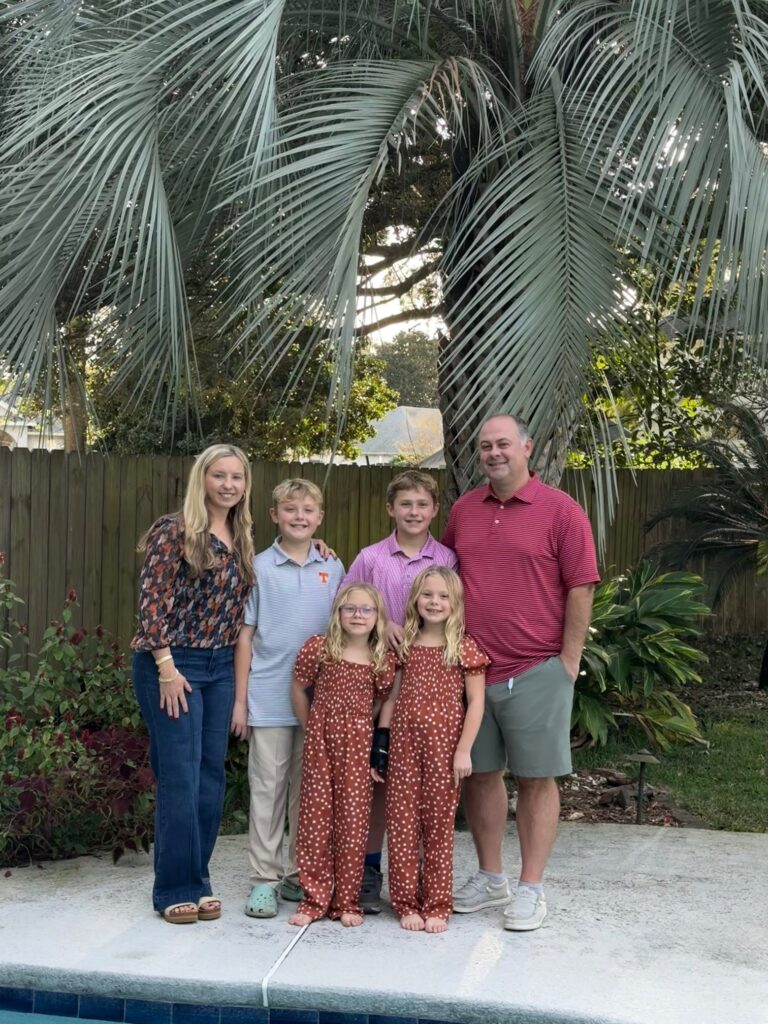
At home in Peachtree Corners, Samantha and her husband, Brian, are raising two sets of twins. Luke and Elliot are 12-years-old and love baseball, golf, basketball and band. Charlotte and Noelle are 8-years-old and enjoy piano, tumbling and tennis. “Life with four kids is wonderfully busy,” she said. “I often joke that I’m an unpaid Uber driver!”
After more than a decade in the neighborhood, Samantha credits their support system for helping them manage the day-to-day. “Our neighbors and friends — our village — have supported us through the hardest moments and celebrated life’s greatest joys with us,” she said.
Structure is key to keeping things on track. “We live and breathe by our family calendar,” she said. “Shared schedules, group texts and carpooling help us keep things running.”
Her children remain Samantha’s biggest motivators. “They know, ‘mom’s going to work to help make the world a safer place,’” she said.
The family also leans on routines and simple joys. “Checklists are my go-to mom hack,” she shared. One of their favorite traditions is make-your-own-pizza night. “It’s messy, silly and something we all genuinely look forward to.”
The seven women featured here offer a glimpse into the lives of working moms in Peachtree Corners. Each one balances career, family and community with care and intention. They are just a few of the many women — both working and stay-at-home — who nurture, organize and uplift the people around them every day.
Whether leading teams or guiding their children, mothers across this community show up with strength, love and quiet determination.
You’ll find this story in the May/June issue of Peachtree Corners Magazine, available in print and digital edition.
Related
City of Peachtree Corners
Official City Merchandise Line Debuts This Saturday at Town Green
Published
2 days agoon
May 6, 2025
This Saturday, May 10, residents and visitors are invited to experience the debut of Peachtree Corners’ official merchandise collection at the Town Green. The pop-up shop will be open all day, beginning at 8 a.m., located directly behind the former Jinbei restaurant.
This pop-up shop is provided through a pilot program with Vox-pop-uli and the City of Peachtree Corners.

“We’re thrilled to showcase our city’s spirit through this exciting new merchandise line,” said Louis Svehla, City of Peachtree Corners director of communications. “There’s something for everyone, whether you’re a proud local or just visiting. We are excited about testing this pilot program to raise funds for continued improvements at Town Green and events.”
Featured items include:
- brand new concert-themed apparel
- city-branded merchandise
- limited edition collectibles
- perfect Mother’s Day gift selections
With Mother’s Day approaching, shoppers will find unique, locally inspired gifts guaranteed to delight mom with something she doesn’t already own.

Visitors can browse and purchase items throughout the day, with friendly staff available to assist with selections.
Event details
Date: Saturday, May 10
Time: Starting at 8 a.m.
Location: Town Green (behind former Jinbei location)
Payment methods accepted: Cash and credit card accepted
Related
Read the Digital Edition
Subscribe
Keep Up With Peachtree Corners News
Join our mailing list to receive the latest news and updates from our team.
You have Successfully Subscribed!

GA Tech Launches First-of-its-Kind GT Atrium in Peachtree Corners

Katherine Lafourcade — A Journey of Passion, Resilience and Giving Back

Digital Edition

PCBA Announces 2025 Scholarship Winner

Paul Duke STEM High School Student Earns CGO Scholarship

World Blood Donor Day Starts Here: Theo’s Miracle, Katherine’s Mission [Podcast]

Executive Function: A Tribute to Working Moms

Peachtree Corners Grows Business Opportunities Through Economic Development

Simpson Elementary Marks Exceptional Children’s Week

Executive Function: A Tribute to Working Moms

Official City Merchandise Line Debuts This Saturday at Town Green

Peachtree Corners Grows Business Opportunities Through Economic Development

Digital Edition

World Blood Donor Day Starts Here: Theo’s Miracle, Katherine’s Mission [Podcast]

Paul Duke STEM High School Student Earns CGO Scholarship

PCBA Announces 2025 Scholarship Winner

Light up the Corners [Video]

Capitalist Sage: Business Leadership in Your Community [Podcast]

Cliff Bramble: A Culinary Adventure through Italy

Top 10 Brunch Places in Gwinnett County

A Hunger for Hospitality

THE CORNERS EPISODE 3 – BLAXICAN PART 1

Top 10 Indoor Things To Do This Winter

The ED Hour: What it takes to Remove Barriers from Education

Peachtree Corners Life
Topics and Categories
Trending
-
Digital Edition4 days ago
Digital Edition
-
Podcast4 days ago
World Blood Donor Day Starts Here: Theo’s Miracle, Katherine’s Mission [Podcast]
-
Community2 days ago
Executive Function: A Tribute to Working Moms
-
Business3 days ago
Peachtree Corners Grows Business Opportunities Through Economic Development






